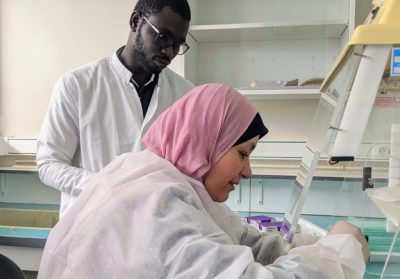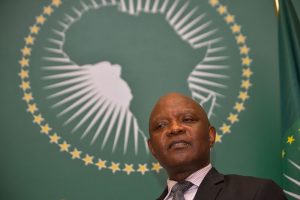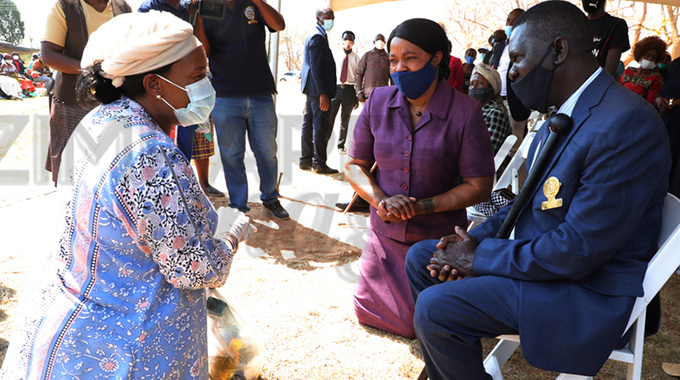Africa Battles COVID-19 Pandemic Effectively

During the early months of the COVID-19 pandemic there was much concern about the impact the virus would have on the African continent.
Predictions focused on the underdeveloped healthcare, transportation and educational sectors of the African Union (AU) member-states stemming from their dependent neo-colonial economies, suggesting that this would prove disastrous once the virus penetrated the region.
The major outbreaks of COVID-19 infections are centered in the more developed economies within the AU. South Africa, the continent’s most industrialized state with a population of close to 60 million, has borne the brunt of the pandemic with approximately 700,000 cases and 18,000 deaths.
Other states reporting high numbers of cases include Ethiopia, Nigeria, Egypt, Algeria and Morocco, all of which are major hubs for urbanization, tourism, international trade and strategic resources extraction. Early on in the beginning of the pandemic, the African Center for Disease Control and Prevention (ACDC) began to track the spread of the potential deadly illness and strengthened cooperation with the World Health Organization (WHO) and other international public health agencies.
Image on the right: Africa CDC Director coordinates efforts across the continent
A daily update published by the ACDC, an affiliate of the AU, reports as of October 14, that 1,593,472 cases have been confirmed on the continent while the death toll from the pandemic stands 38,884 with 1,319, 118 classified as recovered from COVID-19. There are approximately 1.3 billion people living in the AU member-states and therefore in comparison to other geo-political regions, the infection rate overall remains low.
Western corporate and governmental media agencies are perplexed by the situation in Africa which has undergone numerous public health crises over the last two decades. Most recently, the Ebola Virus Disease (EVD) outbreak in three West African states during 2014-2015, resulted in the deaths of more than 11,000 people. (See this)
Over the last year, there was an Ebola outbreak in the Democratic Republic of Congo (DRC) which has been contained through the courageous efforts of Congolese healthcare personnel and research scientists working in collaboration with international groupings such as the WHO. Vaccines to prevent Ebola, along with sophisticated contact tracing mechanisms, have served to prevent a wider proliferation of the disease both domestically and in other contiguous states in Central and East Africa.
Africa Attempts to Coordinate Responses to the Pandemic Unlike the U.S.
Various projects are underway to maintain vigilance against the pandemic. A workshop was held during September on the need to rapidly increase the production of personal protective equipment (PPE) in the AU member-states.
According to a report on the enhanced efforts aimed at producing PPE within the region, the ACDC says that:
“The Infection Prevention and Control Technical Working Group of the Africa Task Force for Coronavirus Response (AFTCOR) held a special virtual workshop to promote manufacturing of personal protective equipment (PPE) in Africa on Thursday, 3 September 2020. Over 300 participants representing policymakers, regulatory agencies, the private sector, government and non-government institutions, manufacturers and distributors of PPE, PPE technical experts, multilateral and bilateral organizations, attended the workshop.”
The lack of PPE is by no means exclusively an African problem. In the United States, this was one of the major complaints leveled against the privately-owned healthcare industry which failed its own workers and patients by not providing adequate protections. Healthcare workers in the U.S. have stated that within the senior convalescent facilities, managers often told employees not to wear masks because it could alarm the residents and patients. Such disregard for protocols and the safety of employees and patients undoubtedly lead to many unnecessary deaths.
President Donald Trump deliberately minimized the threat of the pandemic in the critical months of February and March. After the economic consequences of the rapid spread of infections and consequent deaths, the stock market fell precipitously prompting the appointment of a now-defunct White House Task Force and the eventual passage of a stimulus package in April.
Trump was reluctant to evoke the Defense Production Act and instead sought to bailout large corporations, banks and institutions which experienced drastic declines in revenues and profits.
Today in the U.S., tens of millions remain jobless while facing the potential of foreclosures and evictions in equally as great numbers.
The ACDC stressed during the September workshop the need for the continent to be self-reliant in PPP production, saying:
“In his opening address, Dr. John Nkengasong, Director of Africa CDC, said with a population of about 1.3 billion Africa cannot continue to import over 95% of its PPE requirements. He said adequate and continuous supply of PPE is needed to protect vulnerable healthcare workers from being infected while caring for others…. Key issues discussed included the need for uniform continental standards for PPE manufacturing (including domestication of international standards), enforcement of the standards, greater collaboration between national regulatory agencies for sharing best practices, resource mobilization, procurement of raw materials, post-marketing surveillance, and the protection of intellectual property rights and patents.”
Anyone observing the public health crisis in the U.S. would note the lack of a national policy related to the COVID-19 pandemic. Each state, county and municipality has largely been left to its own devices related to mitigation efforts.
Although the White House has issued guidelines through the U.S. Center for Disease Control and Prevention (CDC), Trump routinely ignores the wearing of masks and the necessity of social distancing. After contracting the virus, the president was given an early detection test and experimental treatments which are not available to the majority working and oppressed peoples in general.
Statistical Comparisons and the Need for Socialized Medicine
Considering the population and economic status of Africa in comparison to other regions of the world, medical experts, social scientists and journalists are seeking explanations of the disparity in rates of infection and deaths. Some of the analysis centers on the relative youthful nature of the African people where those under 30 years of age make-up a substantial portion of the population in most AU member-states.
Others have attempted to claim that the low numbers are a result of the lack of testing capability across the continent. Also there is the notion that the number of cases is being underreported due to lack of access to testing locations within clinics, hospitals and public places.
Yet, in Zimbabwe, for example, the number of infections remains low particularly when compared to neighboring Republic of South Africa. Zimbabwe remains under the yoke of western imperialist sanctions from Britain and the U.S. and has undergone labor difficulties in the healthcare sector. Nonetheless, the government has been able to keep the number of infections to 8,000 with less than 250 deaths.
Zimbabwe First Lady Auxillia Mnangagwa wearing masks along with other government officials
An article published on October 14 in The Hill by Dr. Steven Phillips, an epidemiologist formerly employed by the CDC, raised the questions:
“How can the earth’s poorest continent by almost any health, income, or education measure, including the UN’s Human Development Index, lead the world? How can a continent where 56 percent of its urban population is concentrated in non-social distanced slums, and where only 34 percent of households have access to basic handwashing facilities, largely avoid this viral scourge? These conditions have resulted in Africa having the highest rates of malaria, tuberculosis, AIDS and measles deaths in the world. Not only does COVID not follow this dismal trend, but it has reversed it — demonstrating a dramatically lower toll than any other continent.”
Contrasting the African situation with the U.S. and the world illustrates the dangerous social conditions under which people are living in the most advanced industrialized state in the world, where the number of infections and deaths are continuously climbing. The U.S. remains the most dangerous place to be in the world with more than 7 million infections and 215,000 deaths from COVID-19. The global share of COVID deaths to the world’s population is 5 for the U.S., 2.3 for Europe and 0.26 for Africa. (See this)
This worldwide pandemic has revealed the vulnerability of the U.S. capitalist and imperialist system. These lessons must be learned by the working class and oppressed in order to re-energize the struggle for national health insurance and socialized medicine. Quality healthcare is a fundamental human right despite the avoidance of this pertinent issue within the 2020 presidential debates.
*
Note to readers: please click the share buttons above or below. Forward this article to your email lists. Crosspost on your blog site, internet forums. etc.
Abayomi Azikiwe is the editor of Pan-African News Wire. He is a frequent contributor to Global Research.
All images in this article are from the author; featured image: African Union and African Center for Disease Control in parnership against COVID-19




